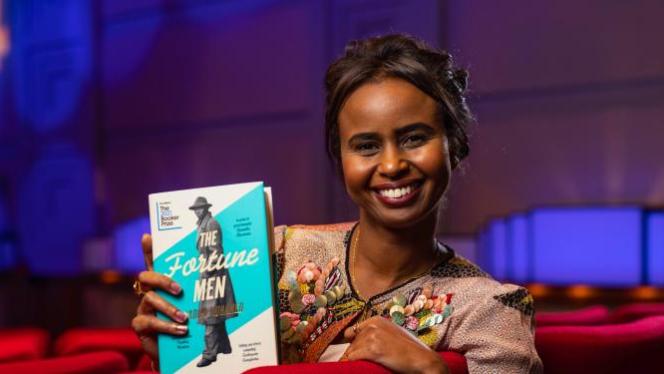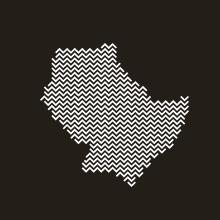Tuesday 22 October 2024
“Novels have taught me to value radical honesty”

“We, as Somalis, are often told to be wary of anything outside of our norm,” says British-Somali author Nadifa Mohamed in an interview with Geeska. Novels taught her to value “radical honesty”
British-Somali author Nadifa Mohamed’s novels have explored universal themes, like migration, loss, displacement, love, the arduous endeavour to preserve cultural traditions, juxtaposed with the anguish of their erosion. Her recent Booker-nominated semi-fictionalised account of Somali seaman Mahmoud Mattan’s life adds another layer, exploring themes of injustice and racism, but also fear, loneliness and the agony of faltering faith.
What the reader may enjoy about reading her work and essays is the way she threads these universal themes through the stories of Somali characters in moving tales always set against the backdrop of significant historical upheaval.
From the imperial zenith of the British empire to its waning days, or the twilight of Siad Barre’s dictatorship in Somalia, Mohamed’s characters draw on experiences with analogues in other communities, but brings a distinctly Somali sensibility to how they’re interrogated; a kind of despairing but humorous stoicism and begrudging acceptance that while hubris may tempt us to place a wager with fate, some things are beyond our power. “The central philosophy of the makhayad school of thought…”, as she calls it in The Fortune Men. But as with Mahmoud Mattan who recites the Islamic declaration in his final breath in her account, she shows how you can get the last word.
She speaks to Geeska about writing, literature and her experience settling in the UK.
Did books and fiction always have a special place for you, or was it something that developed later in life?
I think books became my companions from a very early age. Arriving in Britain, not knowing any English and being flung into the school system meant that books became guides to this new life. The Jennifer Yellow Hat books we had to read in primary school communicated so much more than the simple stories they told, they introduced a whole new culture and way of thinking.
Which book would you credit as having inspired you to embark on a career as a writer?
There is not one; I think I wrote my first novel Black Mamba Boy as fiction rather than as a straight biography of my father because of the influence of history and travel books on me. There is something ancient yet timeless about going somewhere new and writing about what you find. I wrote about my father’s journeys through east Africa and the Middle East as if he were Odysseus or Aeneas rather than as a victim of history.
What was your favourite story as a child (in written or oral formats)?
I loved story books, first with pictures and then without. Growing up in a loud Somali household books offered a way to turn down the noise, retreat into myself and travel without moving. I loved the dark humour of Roald Dahl but also The Worst Witch and Vlad the Drac. I liked naughty characters and identified with Vlad the Drac’s difficulty in learning the rules of a new country.
Tell us about a time when a book totally changed your mind on something.
I don't think it works that dramatically but the novels I've read have definitely formed or reinforced a particular way of looking at the world. Toni Morrison, Arundhati Roy, Junot Diaz, Percival Everett; all the writers I love are interested in an outsider’s perspective on the world, while we, as Somalis, are often told to be wary of anything outside of our norm. Novels have taught me to value radical honesty, contrariness, and individuality.
What is the relationship between your literary output and your identity?
I have the kind of inner life that is very suited to writing literature so I'm glad to have found this way of life or it found me. I write fiction but have also written poetry, scripts and essays so I feel I'm always somehow still in motion, still in development. Coming from a background where there is not much of literary history is also exciting as there is alot to capture on the page for the first time, lots of stories that I hear from our oral history that are fertile ground for fiction.
You are one of the authors that bring the Somali stories to life and make the issues and themes in our lives reach global audiences. What do you enjoy most about researching these lives and sketching them out for your readers?
All of it; I studied history and politics at university so that research-heavy analytical look at someone’s life and how it connects to the wider political context around them seems a very obvious way to work my way into a character’s life and viewpoint. A character such as Mahmood Mattan made me write The Fortune Men as an expansive piece of writing, focusing on his life and the Somali experience of labour and migration but also post-war Britain and its judicial system and all of the countries he passed through. All of my novels have taught me a lot and have extended my education.
What are you reading at the moment?
James by Percival Everett, it’s great! A narrative of slavery unlike any other I've read.










